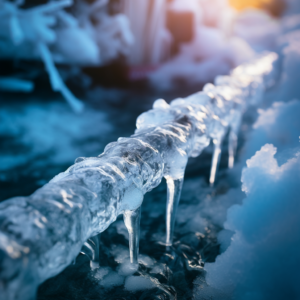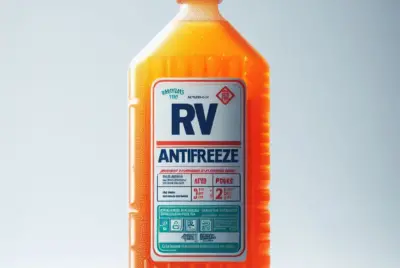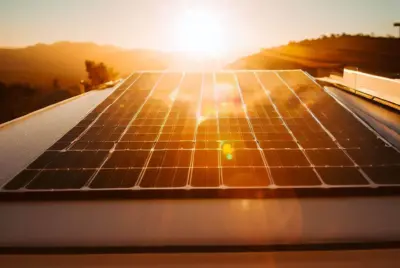How to Keep RV Pipes from Freezing While Camping
As an avid RV enthusiast and advisor, I understand the thrill of embarking on an RV camping adventure, especially in the great outdoors during winter. However, with the drop in temperatures, the risk of your RV pipes freezing becomes a real concern. Frozen camper pipes disrupt your camping experience and lead to potentially costly repairs. In this comprehensive guide, I’ll share valuable insights and strategies to ensure your RV’s plumbing system remains unfrozen, allowing you to enjoy your winter camping trip to the fullest.
The Importance of Preventing Frozen RV Pipes
Before diving into the preventive measures, let’s understand why it’s crucial to prevent your RV pipes from freezing:
- Avoid Costly Repairs: Repairing or replacing pipes can be expensive. Preventing freezing is a cost-effective way to protect your investment.
- Sustain a Comfortable Lifestyle: Maintaining your RV’s water supply and plumbing system ensures you can enjoy all the comforts of home, even in the cold.
- Prevent Inconvenience: Frozen water or sewer pipes can disrupt your trip, leading to inconvenience and stress. Prevention is the key to a smooth camping experience.
The importance of preventing RV pipes from freezing cannot be overstated. When the mercury plummets, the risk of your RV’s plumbing system succumbing to the bitter cold becomes a significant concern. These repairs can be financially burdensome and incredibly inconvenient, potentially spoiling your entire trip. Beyond the financial aspect, maintaining your RV’s water supply and plumbing system ensures you can enjoy all the comforts of home, even in winter’s chill. Preventing RV pipes from freezing is not just about safeguarding your investment; it’s about sustaining a comfortable and stress-free lifestyle on the road during the colder months.
Factors Contributing to Frozen RV Pipes
 Several factors can contribute to the freezing of RV pipes:
Several factors can contribute to the freezing of RV pipes:
- Cold Weather: Obviously, low temperatures are a primary factor in freezing pipes.
- Below Freezing Temperatures: When the thermometer dips below freezing, your RV’s plumbing is at risk.
- Exterior Components: Exterior hoses, tanks, and exposed pipes are especially vulnerable.
- Lack of Insulation: Inadequate insulation inside the RV can lead to frozen interior pipes.
Several factors contribute to the vulnerability of RV pipes to freezing. The most obvious is cold weather itself, as plummeting temperatures can cause water to freeze quickly. When the thermometer drops below freezing, your RV’s plumbing becomes particularly susceptible and you may have pipes freeze. Exterior components, such as hoses and tanks exposed to the elements, are especially vulnerable. Furthermore, if your RV lacks proper insulation or if there are gaps in insulation, even the interior pipes may fall prey to freezing temperatures. Understanding these contributing factors is essential for effectively preventing RV pipes from freezing and ensuring a smooth and hassle-free camping experience in colder climates.
Understanding Your RV’s Plumbing System
To effectively prevent frozen pipes, it’s essential to have a basic understanding of your RV’s plumbing system:
- Fresh Water Tank: Stores freshwater for use in sinks, showers, and toilets.
- Grey Water Tank: Collects wastewater from sinks and showers.
- Black Tank: Holds sewage waste from the toilet.
- Water Lines: Pipes that carry water throughout the RV.
- Water Pump: Pressurizes water from the water tank.
- Sewer Hose: Connects your RV to dump stations. More about Sewer Hoses Here
- Water Heater: Heats water for domestic use.
Understanding your RV’s plumbing system is fundamental to safeguarding it from the threats of freezing temperatures. Several key components play critical roles in the intricate network of pipes and tanks that make up your RV’s plumbing. The freshwater tank stores the water you use for sinks, showers, and toilets. The grey water tank collects wastewater from sinks and showers, while the black tank holds the less glamorous but equally vital sewage waste from the toilet. Water lines act as the arteries, transporting water throughout the RV, and the water pump pressurizes water from the tank. The sewer hose, often forgotten but essential, connects your RV to dump stations. Finally, the water heater ensures you have a warm and comfortable experience. Knowing how these components work together will help you make informed decisions about keeping them from freezing during your winter RV adventures.
Now that we have a grasp of the basics, let’s explore strategies to prevent RV pipes from freezing:
Insulating and Heating Your RV
Insulating and heating your RV is at the core of preventing frozen pipes during winter camping. First, using foam insulation for your pipes is a fundamental step in this process. It involves insulating exposed pipes with foam insulation sleeves, providing a protective barrier against the cold. Additionally, employing heat tape and heating pads can be incredibly effective. When wrapped around vulnerable pipes, heat tape generates warmth that keeps freezing at bay. Heating pads, designed specifically for RV use, can be applied directly to your holding tanks, ensuring they remain at a stable temperature. Furthermore, the deployment of tank heaters is essential, as they are specialized electric heating pads designed to prevent black and grey water tanks from freezing. These energy-efficient heaters provide peace of mind, knowing that your essential wastewater systems are safeguarded from the harsh winter conditions.
Foam Insulation for Pipes
- Insulating your RV’s exposed pipes with foam insulation sleeves is an effective way to prevent freezing.
- Ensure that all vulnerable areas are adequately covered with insulation.
Use of Heat Tape and Heating Pads
- Heat tape, or heating cable, can be wrapped around exposed pipes to generate heat and prevent freezing.
- Heating pads designed for RV use can be applied directly to tanks to keep them warm.
The Benefits of Tank Heaters
- Tank heaters are specialized electric heating pads designed to keep your holding tanks at a stable temperature.
- These energy-efficient heaters prevent frozen black and grey water tanks.
Keeping the RV Interior Warm
- Position electric space heaters strategically to maintain a warm interior, indirectly protecting your pipes.
- Electric blankets on your holding tanks provide extra insulation and warmth.
To round off, keeping the interior of your RV warm, using electric space heaters and even electric blankets on your holding tanks, adds an extra layer of insulation to protect your pipes and maintain a cozy environment for your camping adventures.
Dealing with Exterior Components
Insulating Exterior Hoses
- Insulate exterior hoses with foam insulation or heated hose products.
- Ensure that all connections are properly insulated to prevent freezing.
Using Heated Water Hoses
- Heated water hoses are designed to keep water flowing in freezing temperatures.
- Investing in one can ensure a continuous water supply during winter camping.
Strategies for Preventing Frozen Holding Tanks
- Keep your holding tanks near full to reduce the volume of liquid that can freeze.
- Regularly empty your tanks if you’re camping for an extended period in cold temperatures.
Preparing Your RV’s Interior
Open Cabinet Doors
- Leaving cabinet doors under sinks open allows warm air to circulate around plumbing, reducing the risk of freezing.
Properly Insulating the RV’s Interior
- Insulate the interior of your RV with weatherstripping and draft stoppers to minimize drafts and heat loss.
Avoiding Drafts with Weather-Stripping
- Ensure that doors and windows are properly sealed with weather stripping to keep cold and warm air out.
Using a Hair Dryer or Heat Gun for Emergencies
- Have a hair dryer or a heat gun on hand for emergencies. It can be used to thaw frozen pipes in a pinch.
RV Antifreeze: A Winter Essential
The Importance of RV Antifreeze
- RV antifreeze is a crucial tool for preventing frozen pipes.
- Use a non-toxic, RV-specific antifreeze to protect your plumbing system.
How to Properly Use RV Antifreeze
- Follow manufacturer instructions to properly winterize your RV plumbing with antifreeze.
- Ensure all water lines and tanks are adequately treated.
Parking Your RV Wisely
Ideal Locations and Angles for Parking
- Angle your RV to face the prevailing wind to reduce exposure to cold winds.
- Choose sheltered locations when possible to minimize temperature extremes.
Choosing a Warmer Location
- When planning your camping trip, consider selecting destinations with milder winter weather.
- Research campgrounds with hookups for electricity and water, providing added convenience in cold temps.
Using RV Skirting
- RV skirting creates a barrier around the base of your RV, trapping heat and preventing cold air from reaching your plumbing.
Routine Maintenance and Inspection
Routine maintenance and inspection play a pivotal role in preventing frozen pipes in your RV. As an enthusiast and advisor, I cannot stress enough the importance of regularly checking your RV for potential issues. Even the smallest of leaks or gaps in insulation can lead to frozen pipes and costly repairs. Regular inspections should include thoroughly examining your plumbing system, and looking for any signs of damage, wear, or insulation gaps. Addressing these issues promptly not only ensures the continued functionality of your plumbing but also helps prevent further damage. It’s a proactive approach that ensures your RV is in top shape and ready to withstand the challenges of winter camping, allowing you to enjoy your adventures without the fear of frozen pipes lurking in the background.
Keeping Your RV in Top Shape
- Regularly inspect your RV for leaks, damaged insulation, or gaps in the plumbing.
- Address any issues promptly to prevent further damage.
Preparing for a Winter Camping Trip
Checklist for a Successful Winter Trip
- Storing fresh water properly.
- Properly using water lines and pumps to maintain a continuous water supply.
- Maintaining a consistent heat source in your RV.
- Having emergency supplies, including a hair dryer and extra insulation.
Conclusion
Camping in an RV during the winter can be an extraordinary adventure, but it comes with the responsibility of safeguarding your plumbing system from freezing temperatures. Implementing the strategies discussed in this comprehensive guide can significantly reduce the risk of frozen pipes and costly repairs. Remember that preparation is key to a successful winter camping trip. Stay warm, stay safe, and keep enjoying your RV lifestyle!
FAQs
- Can I use regular foam insulation for my RV pipes?
- Regular foam insulation can be used for RV pipes, but it’s advisable to use insulation designed for outdoor and plumbing applications for optimal protection.
- Should I simultaneously use space heaters and electric blankets in my RV?
- Using both space heaters and electric blankets can be effective for keeping your RV warm, but ensure your electrical system can handle the load to avoid tripping circuits.
- How often should I check my holding tanks for freezing?
- It’s a good practice to check your holding tanks regularly, especially in freezing temperatures, to prevent potential issues.
- Is there a specific type of RV antifreeze that’s better for cold-weather camping?
- Look for non-toxic RV antifreeze labeled for cold temperatures or winter use to ensure it provides adequate protection in freezing temperatures.
- Can I DIY RV skirting, or should I purchase a kit?
- You can DIY RV skirting, but purchasing a kit is often more convenient and ensures proper fit and insulation.




